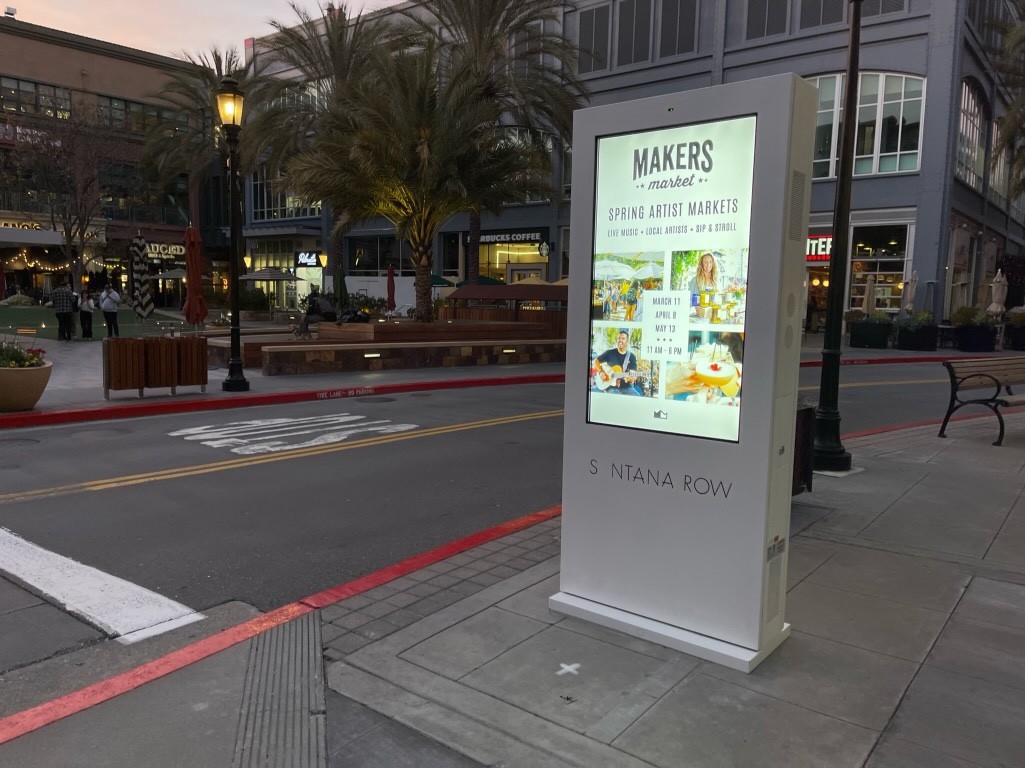
Published: Jan 8, 2023
Buena Park, California
Blog: Understanding Environmental Regulations for Outdoor Touch Screen Kiosks and Self-Checkout Kiosks

As technology advances, businesses are increasingly adopting outdoor touch screen kiosks and self-checkout kiosks to enhance customer experience and streamline operations. However, as these kiosks are deployed outdoors, they are subject to various environmental regulations that businesses need to be aware of. In this blog post, we will discuss the key environmental regulations that businesses need to know when deploying outdoor touch screen kiosks and self-checkout kiosks.

1. Waterproofing and Dust Resistance
Outdoor touch screen kiosks and self-checkout kiosks must be waterproof and dust-resistant to protect them from the elements. These kiosks must meet industry standards such as the IP65 rating, which indicates the kiosk is protected against dust and low-pressure water jets. This rating ensures that the kiosk’s components, such as the screen, computer, and payment devices, are protected from water and dust, thereby reducing the risk of equipment failure.
2. Temperature and Humidity Control
Outdoor touch screen kiosks and self-checkout kiosks must be designed to operate within specific temperature and humidity ranges. These kiosks should be able to withstand extreme temperatures and humidity, which can cause damage to the kiosk’s components. For example, if the kiosk’s screen becomes too hot, it may cause the screen to malfunction or become distorted. Therefore, businesses should ensure that their kiosks are designed to operate within specific temperature and humidity ranges to prevent any damage.
3. Energy Efficiency
Outdoor touch screen kiosks and self-checkout kiosks must be energy-efficient to reduce their impact on the environment. These kiosks should be designed to consume as little energy as possible to reduce their carbon footprint. Energy-efficient kiosks are not only environmentally friendly but also help businesses save money on energy costs.
4. Hazardous Materials
Businesses should ensure that their outdoor touch screen kiosks and self-checkout kiosks are free from hazardous materials such as lead, mercury, and cadmium. These materials can be harmful to the environment and human health. Therefore, businesses should ensure that their kiosks are RoHS (Restriction of Hazardous Substances) compliant. RoHS is a regulation that restricts the use of certain hazardous materials in electrical and electronic equipment.
5. Recycling and Disposal
Finally, businesses should ensure that their outdoor touch screen kiosks and self-checkout kiosks are recycled and disposed of properly. These kiosks contain various components that can be recycled or reused. Businesses should work with their kiosk manufacturers to ensure that their kiosks are designed with recycling in mind. Additionally, businesses should ensure that their kiosks are disposed of in an environmentally friendly manner.
In conclusion, businesses must be aware of the various environmental regulations when deploying outdoor touch screen kiosks and self-checkout kiosks. These regulations include waterproofing and dust resistance, temperature and humidity control, energy efficiency, hazardous materials, and recycling and disposal. By adhering to these regulations, businesses can deploy environmentally friendly kiosks that enhance customer experience and streamline operations.
